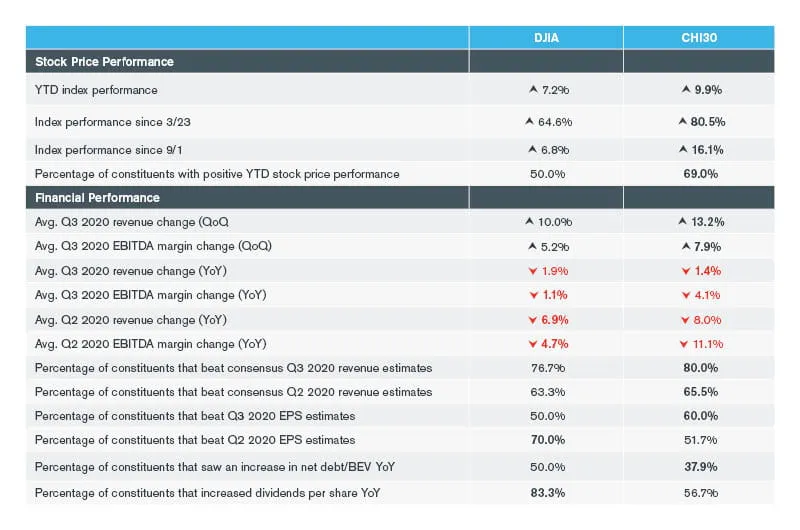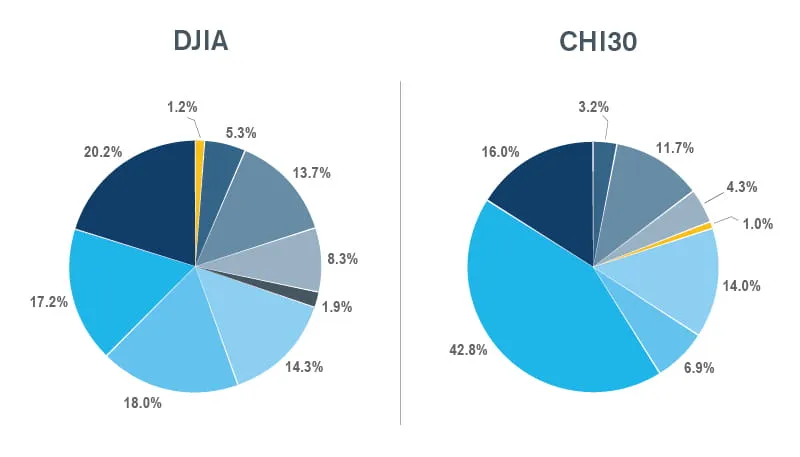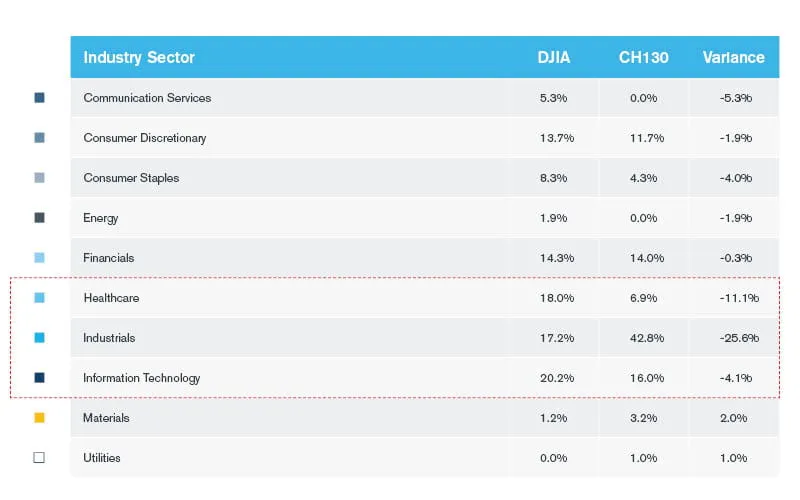Kroll’s 2025 Business Resilience Report

Wed, Jan 27, 2021
Kroll analyzed a price-weighted index of Chicago’s 30 largest publicly traded companies by market capitalization (the CHI30). The Dow Jones Industrial Average (DJIA) is comprised of diversified companies and some of the largest in the U.S. ($204 billion median market cap vs. $28 billion median market cap of CHI30).
Key highlights from the report:
The CHI30 performed worse than the DJIA on most Q2 financial performance metrics, but CHI30 companies performed better than the DJIA in Q3

The CHI30 is overweight in industrials and underweight in information technology, healthcare and communication services.


M&A advisory, restructuring and insolvency, debt advisory, strategic alternatives, transaction diligence and independent financial opinions.
Kroll’s investment banking practice has extensive experience in M&A deal strategy and structuring, capital raising, transaction advisory services and financial sponsor coverage.
Our Opinions Practice is a global leader in Fairness Opinions and Special Committee Advisory, ranking #1 for total number of fairness opinions Globally, in EMEA and the U.S. for 2024 according to LSEG (FKA Refinitiv).
Kroll’s Transaction Advisory Services platform offers corporate and financial investors with deep accounting and technical expertise, commercial knowledge, industry insight and seamless analytical services throughout the deal continuum.
Kroll has extensive experience raising capital for middle-market companies to support a wide range of transactions.
Dedicated coverage and access to M&A deal-flow for financial sponsors.

by Paddy King

by Greg Franceschi, Gary Raichart

